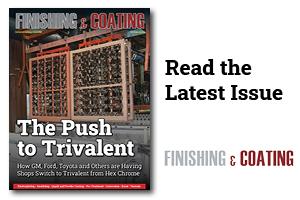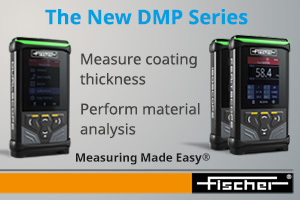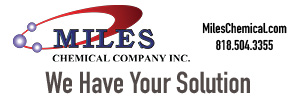Jesse Heines of Digger Specialties has a particular affinity for making sure the powder coated aluminum components his company manufactures look as exquisite as they do.
Digger Specialties makes railing, fencing, and column manufacturer with various locations around the U.S. Heines is the Corporate Powder Coating and Project Manager for the railing, fencing, and column manufacturer with various locations around the U.S. He knows the quality he would want at his home.
“Our railings are attached to the house,” Heines says. “We're on the deck, and people will be sitting next to their railing. It has to be top-notch.”
That is one of the reasons that Heines and the Digger Specialties manufacturing team take their time to pretreat parts correctly as they are being processed through the coating line. They also devote a lot of time dialing in their finishing operation to provide the best product possible.
Three Facilities with Identical Powder Coat Processes
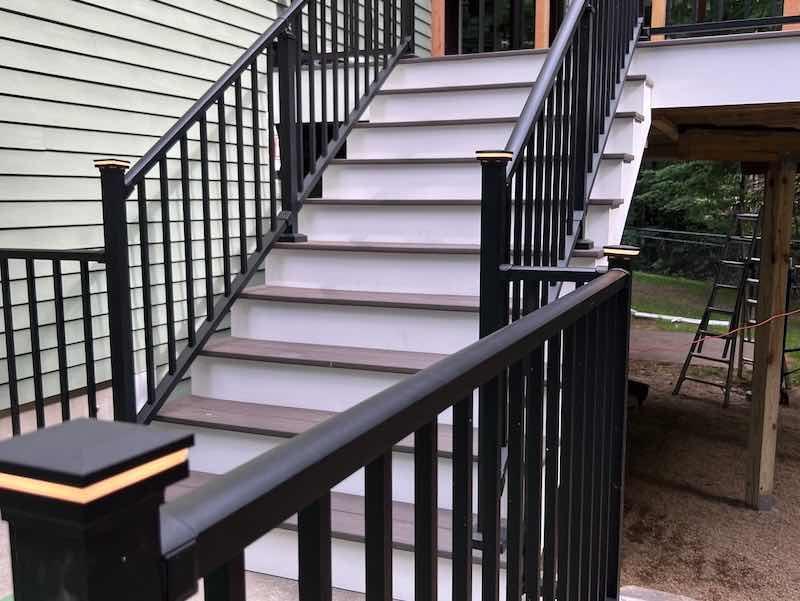 Digger Specialties makes railing, fencing, and column manufacturer with various locations around the U.S. It is also one reason why Digger Specialties has painstakingly set up the powder coating lines in its three facilities in Indiana, Missouri, and Pennsylvania to operate identically so that quality and consistency are repeated every shift.
Digger Specialties makes railing, fencing, and column manufacturer with various locations around the U.S. It is also one reason why Digger Specialties has painstakingly set up the powder coating lines in its three facilities in Indiana, Missouri, and Pennsylvania to operate identically so that quality and consistency are repeated every shift.
“We know what works, and we're not going to change that unless regulations require it,” Heines says. “We've had product in the field for 20 years, and it's doing great. So it's not broke, and we aren’t going to fix what isn’t broke.”
Loren “Digger” Graber founded his outdoor living and maintenance-free products in 1984, starting as a manufacturer of vinyl fencing and various other related maintenance-free products. Under his leadership, DSI has become one of North America's leading aluminum railing manufacturers for decks and porches.
The company specializes in railing systems, screen rail (screen room enclosures), fencing, gates, columns, and outdoor lighting. Most of its products can be found at lumber yards, specialty building products locations, and retail stores such as Home Depot.
The company has five locations and has powder coating operations in three of them:
- Bremen, Indiana, which is also the corporate Offices.
- Valdosta, Georgia.
- Randleman, North Carolina.
- Carthage, Missouri.
- Montgomery, Pennsylvania.
For Heines, it was paramount to ensure that the powder coating lines were identical in the Indiana, Missouri, and Pennsylvania facilities, especially since the company offers a lifetime limited warranty on its products.
No Sleep Loss Over Lifetime Warranty
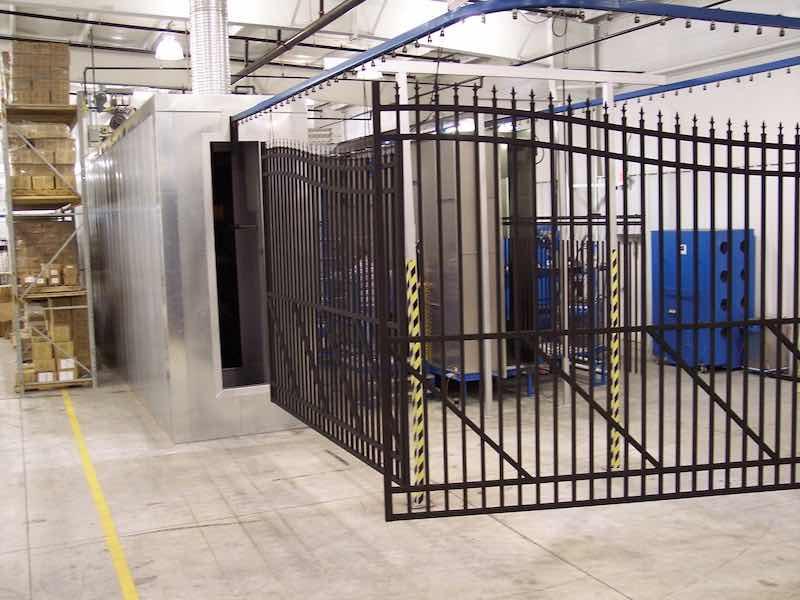 “With a lifetime limited warranty on our products, we all want to sleep at night,” he says. “Through all our research on available chemistries from multiple suppliers, we feel we've put together the best package we can for aluminum-only production lines to offer that product warranty.”
“With a lifetime limited warranty on our products, we all want to sleep at night,” he says. “Through all our research on available chemistries from multiple suppliers, we feel we've put together the best package we can for aluminum-only production lines to offer that product warranty.”
DSI was outsourcing its coating process until deciding in 2004 to bring it in-house at its Indiana location. They outgrew that line and added a second one in Indiana in 2013.
In 2004, no one on the company’s manufacturing team had experience in coatings, so Heines was chosen to oversee the operations by default.
“All the managers sat around the conference room table and talked about what we're going to do, and the question was asked, ‘Who wants to head this up?’” he recalls. “Everyone stared at each other for a while, and nobody said anything. So I raised my hand and put my toe in the water; I had no idea what I was getting into.”
DSI got a big assist from its suppliers, who helped build the system for them, and the chemical and powder suppliers, who assisted in launching the system. Otherwise, Heines and his team hit the textbooks to learn what they were getting into.
“I got some books and started reading,” he says. “I started to understand what I was getting into, then I called all the suppliers in, and we sat down, and I said, ‘Tell me what we're doing.’ Outside of reading about it, that's it.”
Heines and his team—which includes Jesse Boyer, the Indiana Powderline Plant Manager—have also attended workshops and conferences over the years to become even more educated in the nuances of the powder coating process.
“Sitting through some presentations and working hand-in-hand with our suppliers, we feel like we put together the best package out of what's available,” Heines says.
Good Finish Starts by Protecting Substrate
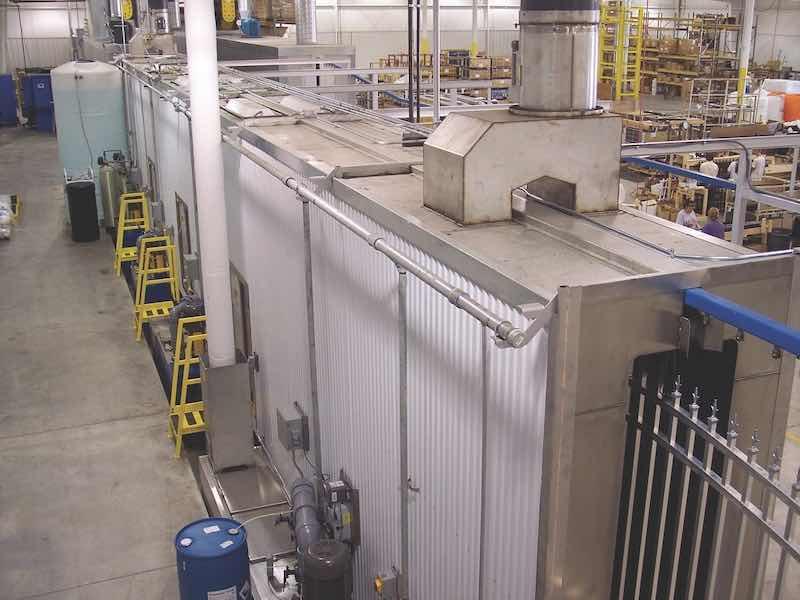 One key to their training and gaining experience in the coating process was realizing how to protect the aluminum substrates as much as possible. All of their extrusions are stored indoors, and they transport their products on covered trailers to keep them as dry as possible to avoid oxidation.
One key to their training and gaining experience in the coating process was realizing how to protect the aluminum substrates as much as possible. All of their extrusions are stored indoors, and they transport their products on covered trailers to keep them as dry as possible to avoid oxidation.
“We store all aluminum extrusions that get powder coated indoors under the roof,” Heines says. “We don't let it get wet, but if we find some oxidized material, it gets stickers all over it, goes into quarantine, and then gets recycled. Without a good piece of material, it doesn't matter what type of coating you put on it. You just can't take a rusty piece of metal and paint it and expect that it's not going to rust eventually.”
In 2010, DSI became one of only seven coating facilities to earn a PCI 4000 Certification from the Powder Coating Institute, a program for OEMs that is an extensive audit program that evaluates business practices, process elements, equipment, maintenance practices, and quality control capabilities.
Heines says having the audit so early in their process of powder coating parts was key to setting them on the path of having a great finishing operation.
“The PCI 4000 certification encompasses the whole business process, from customer satisfaction to packaging, to raw material storage, to quarantining any defective raw materials,” he says.” They audit our coating processes to verify that we are checking and recording, and they look at the data to ensure we're not running outside of parameters.”
DSI management felt it was important to undergo the audit and certification process to demonstrate to its customers its commitment to coating quality and to align with its goal of providing a lifetime limited warranty.
“We wanted our customers to know that we're consistently monitoring our processes from beginning to end to make sure that the material selection is right, that the packaging is right, and that it goes out the door right so our customers receive their order right,” Heines says.
Extensive New Employee Training and Mentoring
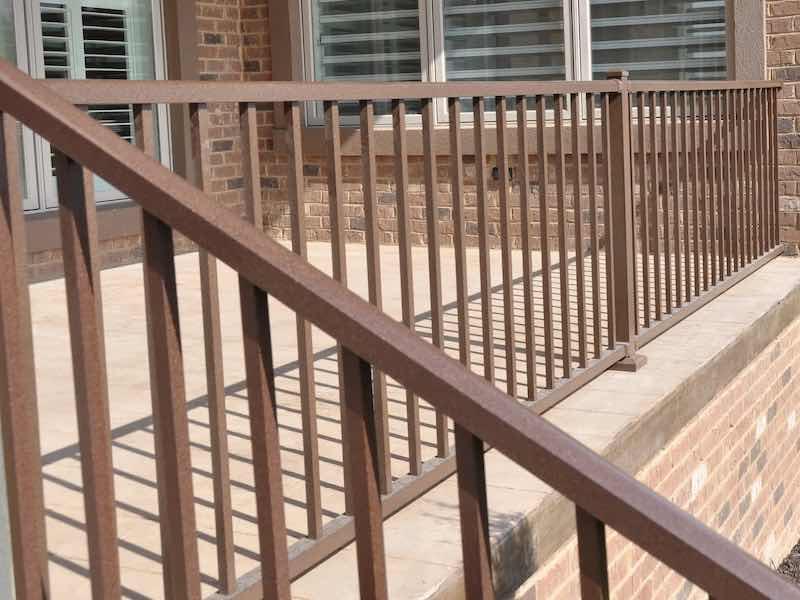 Boyer says every new employee in the coating department undergoes an extensive orientation that explains the quality program and what is needed to keep it running every day and on every part.
Boyer says every new employee in the coating department undergoes an extensive orientation that explains the quality program and what is needed to keep it running every day and on every part.
“We have a mentor training program for each employee, and then we do annual training,” he says. “The mentor training gets them through until we have time to do the annual training, during which we explain the processes more thoroughly. But everybody is trained the same way, and only a few instructors do the training. They're all getting trained the same way.”
In addition, DSI has instilled what it says is a proprietary 10-step quality program to ensure its aluminum can withstand exposure to the weather and normal wear and tear.
- The raw premium-grade aluminum is inspected to be blemish-free and not exposed to the outdoor elements.
- The product enters a heated acidic cleaning stage to remove extrusion debris and fabrication oils.
- Clean: City water rinse.
- Cleaner: Recycling reverse osmosis water rinse.
- Cleanest: Pure reverse osmosis water rinse.
- Sealer: Dried-in-place aluminum sealer.
- A 200-mile-per-hour air blast removes water drops from the pre-treated aluminum.
- A convection oven completes the dry-off process.
- Powder is applied with 18 automated and two manual spray guns. Compressed process air is dried to -35°F dew point for superior adhesion.
- The powder coating is bonded and adhered to the aluminum substrate in a 400°F cure stage.
DSI has two enclosed track conveyors and a third I-beam system at the Indiana plant. Depending on the parts being coated, one line travels at 6 feet per minute, and the other runs at 12 feet per minute.
“Sometimes you got to do a double take to see if it's moving,” Boyer says of the slower line. “We can run nine feet by 32 feet on one line for the longer profiles such as gates and handrails.”
The other two lines in Bremen are compact, making multiple passes throughout the dry-off and the cure oven.
“Our part window is significantly smaller,” Boyer says. “We can go 22 inches wide by 9 feet vertical, but they run at 12 feet a minute, so they're twice the speed. It runs the large parts, but its part package is much smaller and more compact. We can put the lines on a much smaller footprint by having compact systems. Missouri and Pennsylvania can coat 32 feet by 9 feet.”
Overcoming Unique Part-Handling Obstacles
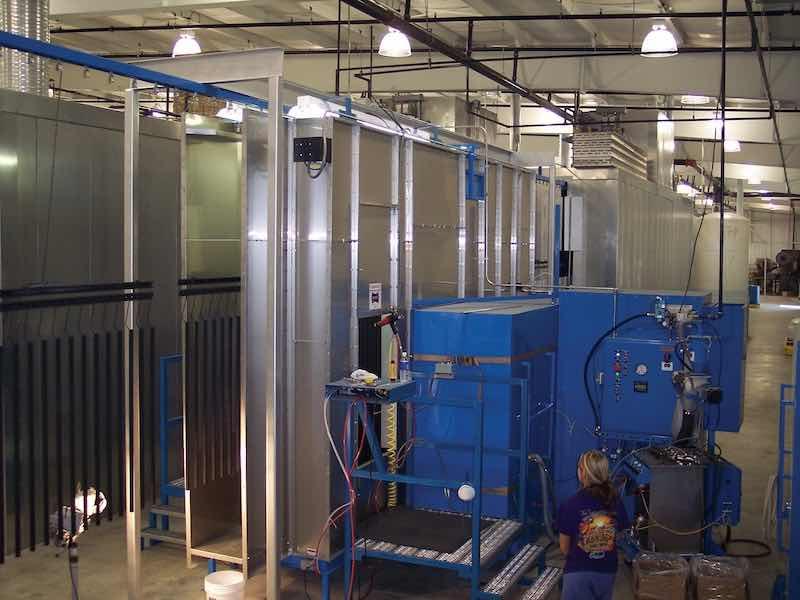 Because of the large parts, there are some unique handling obstacles. Heines says the Indiana conveyor track on line one is spaced 12 feet apart, traveling in one direction, making a loop and returning. Large parts are hung from the conveyor on center, then manually turned to line up with the opening of the cure oven.
Because of the large parts, there are some unique handling obstacles. Heines says the Indiana conveyor track on line one is spaced 12 feet apart, traveling in one direction, making a loop and returning. Large parts are hung from the conveyor on center, then manually turned to line up with the opening of the cure oven.
“We pivot the large products to line them up with the cure oven, so it's a bit more difficult,” he says. “We engineered the coating line in Pennsylvania around the parts, so they don't have to manually rotate it. The spray booth has two conveyors that run through the center of the spray booth. For large parts, they transfer them to a loop conveyor that runs through the cure oven, and it's straight through the spray booth.”
The powder coating line in Carthage, Missouri, opened in 2019, and the line in Montgomery, Pennsylvania, opened in 2022. In 2021, the Indiana location received its third line; the company has five lines running in total.
DSI can apply 12 standard colors to its outdoor fixtures, which can require some juggling to ensure the production department is in sync with its finishing operation to determine a coherent plan for changing colors and preparing the coating operations.
Heines says they have coating line coordinators who work closely with the production and fabrication team to ensure that all the departments are on the same page and ready for any color.
“The line coordinators work with the fab departments to try and get them all running the same colors simultaneously,” he says. “When they do get to the powder line, we don't have as many color changes, but there are days when each line may do 15 color changes on a line per shift.”
When DSI is coating with dark colors, the color change takes about seven minutes with full reclaim ability, which the team says is very quick.
“Going from black to white, it is probably 35 to 40 minutes for a color change,” Heines says. “That's pretty quick, and we're still reclaiming the overspray.”
Color-Matching Specific Customer Requests
Mary Gearheart, Marketing Manager for DSI, says the company also, through their custom color program, works to match any custom color a customer wants on their gates, railings, or other products.
“If you have a color in mind and work through our tech services department, we can match most colors,” she says. “We had a daycare facility that wanted all bright primary colors on their fence, which were multiple colors. If we can match the color, we can do it for you.”
Heines says they only need a customer's color chip or RAIL color number and work with their powder suppliers to create a suitable match. As far as finishing in the unique colors, he says the coating team gets flagged well before a new color comes through. The custom colors can either be AAMA 2604 or 2605 depending on the needs of the customer.
“The coordinators try to gather that whole order up so it all goes through together,” he says. “I’ve seen pinks, baby blues, and all sorts of things for playground or a splash pad, but we want to do as few color changes as possible for custom colors.”
Heines says coating predominantly outside products is a huge challenge, especially with something that might be in the sun all day and is susceptible to fading. The DSI team knows that what they send out the door is built to last and stay beautiful for as long as the homeowner lives.
“You see little bikes that are red when you buy them, and next year they are pink, which is caused by lower quality coatings,” he says. “We use coatings that contain premium quality pigments and resins. We know our railing, fencing, and columns are on someone’s deck, where people hang out. They want to get home after a day of work and sit out back and have a couple of drinks, and they want it to look nice. We wouldn't ship something out the door that we wouldn't buy ourselves.”







